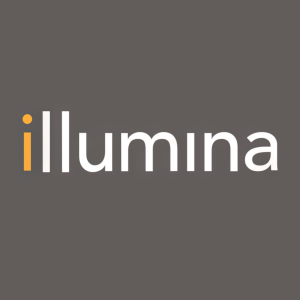Illumina Launches Strategic Research Collaboration with AstraZeneca to Accelerate Drug Target Discovery
Illumina announced a strategic research collaboration with AstraZeneca on October 11, 2022, aimed at accelerating drug target discovery by leveraging AI capabilities and genomic analysis. The partnership seeks to combine Illumina's AI-based tools with AstraZeneca's frameworks to enhance the precision of drug candidate identification. Joydeep Goswami highlighted the potential to prioritize candidates with higher approval prospects. The initiative focuses on analyzing multi-omics data and could pave the way for a long-term partnership based on its success.
- Strategic collaboration with AstraZeneca to enhance drug target discovery.
- Leveraging AI and genomic analysis for improved efficiency in pharma pipelines.
- Potential for prioritizing drug candidates with a higher likelihood of FDA approval.
- None.
Insights
Analyzing...
Aims to improve efficiency of pharma pipelines by leveraging industry-leading ability to identify genetic variants that contribute to human disease
SAN DIEGO, Oct. 11, 2022 /PRNewswire/ -- Illumina Inc. (NASDAQ: ILMN), a global leader in DNA sequencing and array-based technologies, today announced a strategic research collaboration with AstraZeneca, a global, science-led biopharmaceutical company, to accelerate drug target discovery by combining their strengths in artificial intelligence (AI) based genome interpretation and genomic analysis techniques along with industry expertise. The collaboration will evaluate whether a combined framework of these technologies can increase the yield and confidence of target discovery to find promising drugs based on human omics insights.
"Illumina and AstraZeneca are uniquely positioned to improve the efficiency of pharma pipelines by leveraging industry-leading abilities to identify genetic variants that contribute to human disease," said Joydeep Goswami, chief strategy and corporate development officer, interim chief financial officer at Illumina. "By identifying genes that show evidence of human disease causality, the combined framework has the potential to prioritize drug candidates with increased likelihood of approval."
The collaboration leverages Illumina's next generation of AI-based interpretation tools, PrimateAI and SpliceAI, in combination with AstraZeneca's analysis framework for rare variant genomic discoveries—alongside the latter's own AI tools, including JARVIS and in silico predictors like missense tolerance ratio. As part of the research collaboration a framework combining the two companies' AI-based tools will be adopted by AstraZeneca's Centre for Genomics Research to analyze large-scale multi-omics data sets in its digital biobank. The complementary AI tools work to more confidently pinpoint genetic variants that contribute to human diseases, a critical step in the process of developing effective and safe therapies.
Slavé Petrovski, head of AstraZeneca's Centre for Genomics Research, Discovery Sciences, R&D, said: "Continuous innovation in the AI tools and frameworks that are applied to the growing human genomics, transcriptomics, and proteomics medical research resources will enable us to answer some of the toughest questions and contribute to our aims of uncovering novel drug targets with a higher probability of success while also characterizing patient subgroups that are most likely to benefit from the treatments we discover."
"The next generation of drug discovery lies at the intersection of human genetics and AI, making this a potentially pivotal research collaboration that combines Illumina's industry-leading ability to interpret genomes at scale with AstraZeneca's extensive capabilities in large-scale human genetics research," said Alex Aravanis, chief technology officer of Illumina.
The research collaboration focuses on the ability of a combined framework to deliver differential performance across a broad range of human diseases. Upon its successful outcome, the two companies will assess opportunities for a long-term partnership.
This release may contain forward-looking statements that involve risks and uncertainties. Among the important factors to which Illumina's business is subject that could cause actual results to differ materially from those in any forward-looking statements are challenges inherent in developing, manufacturing, and launching new products and services, and Illumina's ability to successfully partner with other companies and organizations to develop new products, expand markets, and grow its business, together with other factors detailed in Illumina's filings with the Securities and Exchange Commission, including its most recent filings on Forms 10-K and 10-Q, or in information disclosed in public conference calls, the date and time of which are released beforehand. Illumina undertakes no obligation, and does not intend, to update these forward-looking statements, to review or confirm analysts' expectations, or to provide interim reports or updates.
Illumina is improving human health by unlocking the power of the genome. Our focus on innovation has established us as a global leader in DNA sequencing and array-based technologies, serving customers in the research, clinical, and applied markets. Our products are used for applications in the life sciences, oncology, reproductive health, agriculture, and other emerging segments. To learn more, visit illumina.com and connect with us on Twitter, Facebook, LinkedIn, Instagram, and YouTube.
Investors:
Salli Schwartz
858-291-6421
ir@illumina.com
Media:
Samantha Beal
714-227-2661
pr@illumina.com
![]() View original content to download multimedia:https://www.prnewswire.com/news-releases/illumina-launches-strategic-research-collaboration-with-astrazeneca-to-accelerate-drug-target-discovery-301645763.html
View original content to download multimedia:https://www.prnewswire.com/news-releases/illumina-launches-strategic-research-collaboration-with-astrazeneca-to-accelerate-drug-target-discovery-301645763.html
SOURCE Illumina, Inc.








